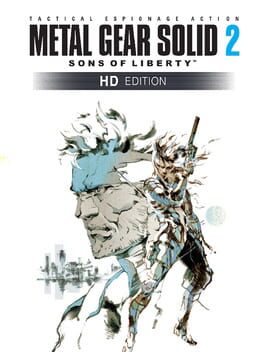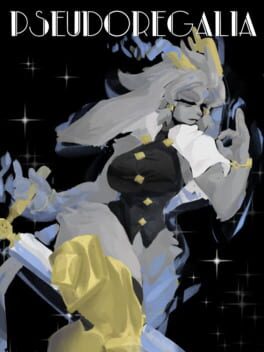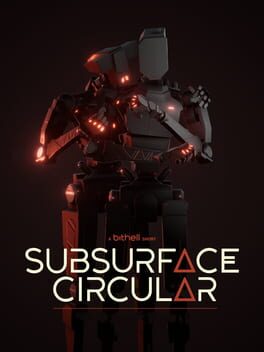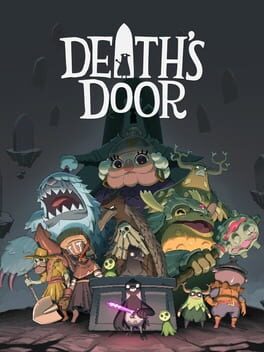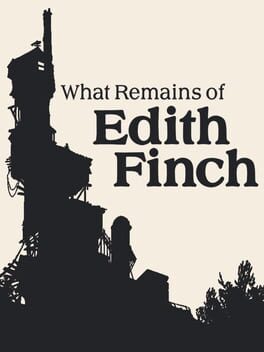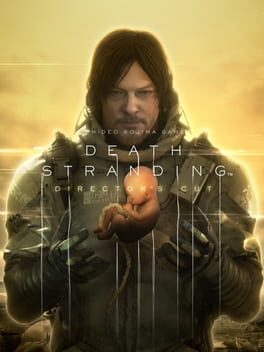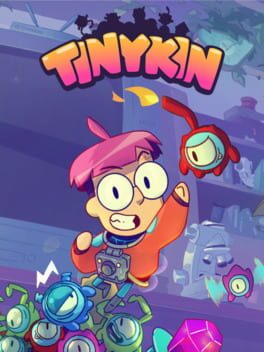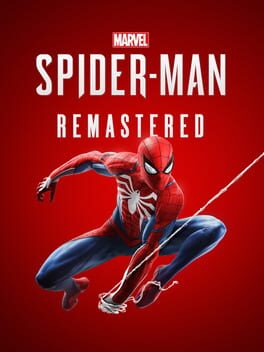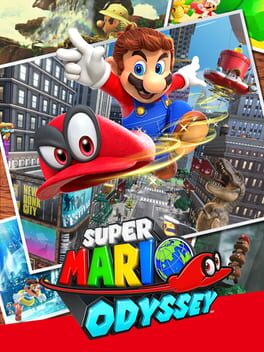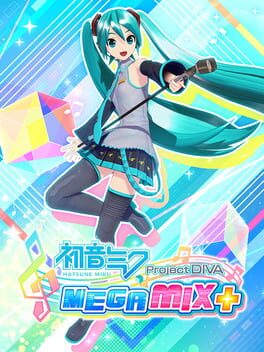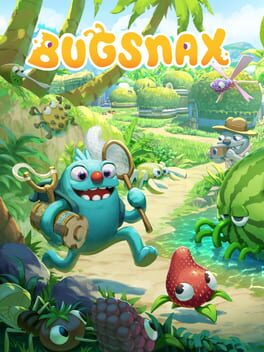gaydeerinc
In the third act of every Kojima game (that I've played) a spark goes off and a fire starts burning, and it never stops until the credits roll. Everything gets revealed in some loud, over the top way. It's all nonsense you can make some sense of, and can't help being entranced by. When it is done burning, the game looks you in the eyes, embers of absurdity still in the air, and trusts in you a shockingly human and hopeful message about our nature, our world and what we ought to do about it. All of its corniness and rough aspects stick with you, yet coalesce into something that feels more human because of that.
Playing through his repertoire, it's hard not to think of all the grandiosity we impart onto his authorship and all the harm that's caused. However, it's easy to understand why it exists: his artistry is so technically impressive yet his dialogue and gameplay have so many obvious flaws. You feel a human soul throughout his art, like you do a great movie or book, in a way that the corporate art of high budget video gaming never allows for anybody else. It's important not to reduce a large team effort to that of a single person, but it's hard not to picture the passion that so clearly flows through his games commanding so many creatives to achieve a singular vision.
In Death Stranding and Metal Gear Solid 2, that human voice is heard perfectly, and guides you so convincingly. It pokes at a possible future, and preaches to us what we should do for it: to use our single, individual future in the hope of a better future, and better society for us all. Almost like a dad who is a bit too full of himself. And like a child to a dad, you say: "Sure, whatever you say old man", and take from all the pomp and circumstance a single nugget of truth.
Perhaps that's what he wanted us to do after all. It's hard to tell.
Playing through his repertoire, it's hard not to think of all the grandiosity we impart onto his authorship and all the harm that's caused. However, it's easy to understand why it exists: his artistry is so technically impressive yet his dialogue and gameplay have so many obvious flaws. You feel a human soul throughout his art, like you do a great movie or book, in a way that the corporate art of high budget video gaming never allows for anybody else. It's important not to reduce a large team effort to that of a single person, but it's hard not to picture the passion that so clearly flows through his games commanding so many creatives to achieve a singular vision.
In Death Stranding and Metal Gear Solid 2, that human voice is heard perfectly, and guides you so convincingly. It pokes at a possible future, and preaches to us what we should do for it: to use our single, individual future in the hope of a better future, and better society for us all. Almost like a dad who is a bit too full of himself. And like a child to a dad, you say: "Sure, whatever you say old man", and take from all the pomp and circumstance a single nugget of truth.
Perhaps that's what he wanted us to do after all. It's hard to tell.
1998
2023
2017
2021
2019
This review contains spoilers
I really, really wanted to love Control. I love its atmosphere, its aesthetics, its setting. Every set piece it throws at you is meticulously crafted to amaze and unsettle you, every text blurb scattered across its levels is a joy to read. It's the kind of game where you can tell there was a team of people involved: every little detail is so full of life, overflowing with passion for this world.
For starters, its opening is, in my opinion, one of the best openings I've ever experienced in a game of its kind. You're instantly aware of the protagonist's motivations and emotions, and you're right away in her shoes, trying to figure out what the hell is going on. But then its ending is so abrupt that it might as well be a movie that jumpcuts to a paragraph explaining what the characters were up to after the filmmakers ran out of money and couldn't film a proper ending.
However, I can tolerate a rushed ending, I can even tolerate a bit of an incoherent plot. What really ruined this game for me was the dialogue, especially the main character's dialogue.
Jessie Faden, the protagonist, could've easily been one of my favorite women in a video game of this kind. She's not played up to be strong, and is honestly just a girl figuring her shit out after some hardcore childhood trauma. Her backstory feels so human, and every little crumb we get of it is among some of the best writing in the game. The way she talks though? Un-fucking-bearable. By the time I was nearing this game's ending I was saying out loud "Oh my god, shut up" several times. She has a terminal case of AAA game dialogue. She talks like a child. She has to give you the solution to every puzzle the moment you start looking at it. Every single kinda weird thing that happens in front of her has to be immediately followed up by some variation of "Wow, that's weird", even though it is established pretty early on that this woman was at the center of possibly the most terrifying and otherworldly supernatural event ever described in the game. It is utterly baffling to me that this grown-ass woman is written like a teenage girl, completely squandering the potential she had.
As for the rest of the cast, a few of them are spectacular (Trench and Darling are simply unforgettable), and the rest are pretty subpar. Mediocre writing paired with mediocre performances really take the wind out of some story beats, especially Jesse's brother, who is built up as this very important character but is never actually allowed any room to breathe and define himself as something other than a one-note character. Even one of the most captivating characters, Ahti, never feels like anything more than a played out trope.
I cannot emphasize enough how much I wanted to love this game, and how tired of it I was when credits rolled. I was really expecting Remedy to iron out Alan Wake's flaws and go to town on sci-fi horror with a good female protagonist. But all I got was all of Alan Wake's flaws, just with better gameplay.
For starters, its opening is, in my opinion, one of the best openings I've ever experienced in a game of its kind. You're instantly aware of the protagonist's motivations and emotions, and you're right away in her shoes, trying to figure out what the hell is going on. But then its ending is so abrupt that it might as well be a movie that jumpcuts to a paragraph explaining what the characters were up to after the filmmakers ran out of money and couldn't film a proper ending.
However, I can tolerate a rushed ending, I can even tolerate a bit of an incoherent plot. What really ruined this game for me was the dialogue, especially the main character's dialogue.
Jessie Faden, the protagonist, could've easily been one of my favorite women in a video game of this kind. She's not played up to be strong, and is honestly just a girl figuring her shit out after some hardcore childhood trauma. Her backstory feels so human, and every little crumb we get of it is among some of the best writing in the game. The way she talks though? Un-fucking-bearable. By the time I was nearing this game's ending I was saying out loud "Oh my god, shut up" several times. She has a terminal case of AAA game dialogue. She talks like a child. She has to give you the solution to every puzzle the moment you start looking at it. Every single kinda weird thing that happens in front of her has to be immediately followed up by some variation of "Wow, that's weird", even though it is established pretty early on that this woman was at the center of possibly the most terrifying and otherworldly supernatural event ever described in the game. It is utterly baffling to me that this grown-ass woman is written like a teenage girl, completely squandering the potential she had.
As for the rest of the cast, a few of them are spectacular (Trench and Darling are simply unforgettable), and the rest are pretty subpar. Mediocre writing paired with mediocre performances really take the wind out of some story beats, especially Jesse's brother, who is built up as this very important character but is never actually allowed any room to breathe and define himself as something other than a one-note character. Even one of the most captivating characters, Ahti, never feels like anything more than a played out trope.
I cannot emphasize enough how much I wanted to love this game, and how tired of it I was when credits rolled. I was really expecting Remedy to iron out Alan Wake's flaws and go to town on sci-fi horror with a good female protagonist. But all I got was all of Alan Wake's flaws, just with better gameplay.
Being among the first games to ever be at the center of the "walking simulator" discourse, and with me being a massive fan of the style of interactive narrative the genre, I knew I'd love this game. Possibly the most ambitious one I've played so far, the only point I can possibly knock against it is that amidst stunning and truly wonderful setpieces, its story is "only" a collection of intricate vignettes about grief and family, with only a vague but effective message to punctate it and connect it at the end.
2022
2022
3D Platformers are a tough genre. They're basically dominated by Nintendo, and nearly any attempt at one from other devs ends up having one or two rough edges that can really break a genre that thrives on reliable & smooth movement. Tinykin joins the ranks of A Hat in Time in being one of the few indie attempts at the genre that actually succeeds in matching its inspirations.
2017
2020
2023
